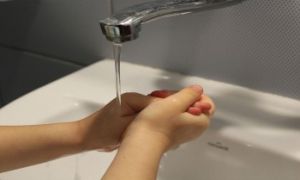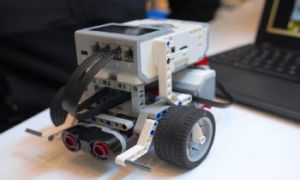

As per the current PHO, all Educators are mandatorily required to be fully vaccinated. This will be repealed by the NSW Government on 13 May 2022. However, there are many workers who either do not wish to take the vaccinations or are unable to, for medical reasons. The cumulative numbers of non-vaccinated Educators have significantly hit the sector which had been dealing with staff shortages even before the pandemic. The following details the impact of the vaccine mandate in the early childhood sector.
For students wanting to complete Certificate 3 in Education and Care Qualification through online study, the following lists are registered training organisations (RTOs) that offer online study. This means that you will be able to complete this qualification online rather than in a classroom setting.
With staff shortages, a growing concern in the early childhood industry, the Carmicheal Centre from the Australia Institute have developed a detailed report with 10 recommendations to overcome the current shortages the industry face. Some recommendations include: Prioritising ECE as an essential public service, providing universal ECEC to all Australian preschool-aged children, conversion of casual, contract-based, and temporary staff to permanent and direct employment, Lifting minimum qualification standards for new ECEC workforce entrants, and TAFE should be the primary provider of foundational education and training for ECEC careers.
The way early childhood education and care is provisioned by the government at local, state and national levels deeply impacts society. Issues range from sector-specific matters like childcare regulations, subsidies and fees to wider dynamics of social equity, workforce participation, children’s development, gender equality and response to global crises like COVID 19 pandemic. In the lead up to the Federal Election on 21 May 2022, here is a breakdown of the position of three major political parties – the Liberal/National Coalition, the Australian Labor Party and The Greens - on policy decisions crucial to early childhood care and education sector.
Early Education Service providers are suffering from the ample shortage of childcare staff. It has been said that there are more than 6000 job vacancies across the country as of March.
Hiring overseas educators can not only bring a service the benefits of a diverse, multicultural workplace but also address staffing shortage issues. However before an overseas candidate can be recognised as an early childhood educator under the NQF, their qualification will have assessed for equivalence by ACECQA.
Even for the most accomplished of new graduates, the transition from educational to professional context can be challenging. Not only is the new educator thrust into the hurly-burly of everyday teaching, but is expected to adjust to an entirely unfamiliar ecosystem of the service. If you are facing a similar prospect, here are a few strategies for a new educator starting in early childhood services, to help you give your professional best.
Conducting performance reviews is an effective way to recognise and reward individual educators contributions within the service. The purpose of performance reviews is to assess the performance of individual educators and to improve communication between Educators and management.
When working as a Diploma Qualified Educator your pay rate is from the Children's Services Award 2010. This Award states your minimum rate of pay based on the completion of your Diploma Qualification. The following will provide information for Diploma Qualified Educators on minimum wages including full time and casual, job responsibilities and more.
 As an Educator in Australia, your pay rate falls under the Children’s Services Award 2010. This award states the minimum amount that an employer can… Read More
As an Educator in Australia, your pay rate falls under the Children’s Services Award 2010. This award states the minimum amount that an employer can… Read More
 When working as a qualified Early Childhood Teacher (with a university degree) within a service, your rate of pay will come from the Educational Services… Read More
When working as a qualified Early Childhood Teacher (with a university degree) within a service, your rate of pay will come from the Educational Services… Read More
 When working as a Diploma Qualified Educator your pay rate is from the Children's Services Award 2010. This Award states your minimum rate of pay… Read More
When working as a Diploma Qualified Educator your pay rate is from the Children's Services Award 2010. This Award states your minimum rate of pay… Read More
 When working as a Cert 3 Qualified Educator, your pay rate is from the Children's Services Award 2010. This Award states your minimum rate of… Read More
When working as a Cert 3 Qualified Educator, your pay rate is from the Children's Services Award 2010. This Award states your minimum rate of… Read More
 Educational Leaders play a crucial role in their early childhood service by ensuring that the educational program aligns with best practices and supports the holistic… Read More
Educational Leaders play a crucial role in their early childhood service by ensuring that the educational program aligns with best practices and supports the holistic… Read More
 In early childhood education and care, ratios are more than a technicality—they are a frontline safeguard. Every child deserves responsive supervision, emotional connection, and developmental… Read More
In early childhood education and care, ratios are more than a technicality—they are a frontline safeguard. Every child deserves responsive supervision, emotional connection, and developmental… Read More
 With the new national child safety reforms kicking in on 1 September 2025, early childhood services like yours have a real opportunity to lead the… Read More
With the new national child safety reforms kicking in on 1 September 2025, early childhood services like yours have a real opportunity to lead the… Read More
 Here’s a comprehensive Mobile Phone and Smart Watch Policy tailored for early childhood education and care (ECEC) services in Australia, aligned with the latest 2025… Read More
Here’s a comprehensive Mobile Phone and Smart Watch Policy tailored for early childhood education and care (ECEC) services in Australia, aligned with the latest 2025… Read More
 The Sea of Fish Challenge is a national initiative that invites children, educators, families, and communities to create and display fish artworks as a symbol… Read More
The Sea of Fish Challenge is a national initiative that invites children, educators, families, and communities to create and display fish artworks as a symbol… Read More
 Across the early childhood education and care sector, educators are sounding the alarm: current staffing ratios are insufficient to deliver safe, meaningful, and developmentally appropriate… Read More
Across the early childhood education and care sector, educators are sounding the alarm: current staffing ratios are insufficient to deliver safe, meaningful, and developmentally appropriate… Read More

Reflective practice is learning from everyday situations and issues and concerns that arise which form...
See more...
STEM, the word stands for Science, Technology, Engineering, and Mathematics. It is a way of...
See more...
Phonemes are the basic units of a spoken language and awareness that language is composed...
See more...© 2009-2025 Aussie Childcare Network Pty Ltd. All Rights Reserved.

